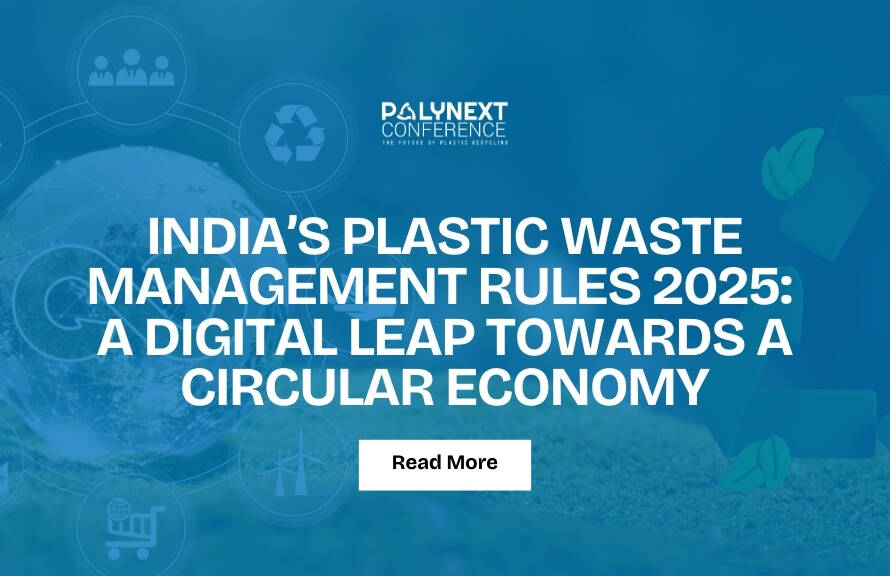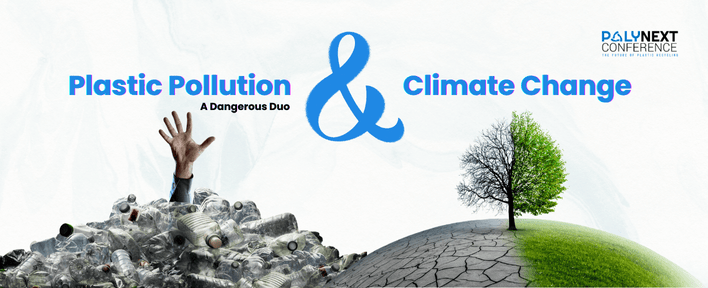Dubai and the Middle East are tackling plastic pollution through bans on single-use plastics, cutting-edge recycling technologies, and circular economy initiatives. With events like PolyNext 2025 driving innovation, the region is emerging as a global leader in sustainable plastic management.
Plastic pollution has become one of the most pressing environmental challenges worldwide, and the Middle East, including Dubai, is no exception. The region generates over 50 million tonnes of plastic waste annually, yet only about 10% is recycled. This gap leads to severe environmental consequences on land and in marine ecosystems. With over 6 kg of plastic waste per person entering ocean waters each year, MENA has one of the highest per capita plastic footprints globally, threatening marine biodiversity and local economies dependent on coastal resources.
Dubai and the UAE are among the region’s highest consumers of single-use plastics, particularly bottled water and packaging. Recognizing this challenge, governments have taken proactive steps:
Abu Dhabi banned single-use plastic bags in 2020, achieving a 75% reduction in usage by 2023.
Dubai followed in 2024 with bans on plastic bags and packaging,
The UAE plans a nationwide ban on plastic cutlery, cups, and Styrofoam by 2026.
These policies are supported by the promotion of sustainable alternatives and innovative recycling technologies, signaling a shift toward a circular economy.
Dubai: A Hub for Plastic Recycling and Innovation
Dubai is rapidly emerging as a center for international collaboration on plastic waste reduction. The city hosts major events like the Plastics Recycling Show Middle East & Africa, bringing together industry leaders, policymakers, and innovators to showcase cutting-edge technologies and share strategies.
One of the most notable platforms is PolyNext 2025, scheduled for October 1–2, 2025, in Dubai. This global conference and awards platform highlights breakthroughs in plastic recycling, sustainability, and circular economy solutions, connecting startups, established companies, and policymakers to accelerate adoption of sustainable practices. PolyNext is part of a larger series of high-impact conferences, including the 17th World Congress and Expo on Recycling, shaping the future of global plastic waste management.
Leading companies in Dubai and across the Middle East are expanding recycling infrastructure and implementing circular economy models. Some innovators are transforming plastic waste into construction materials, reusable packaging, and other sustainable products, demonstrating practical pathways to reduce environmental impact.
Technological Innovations in Plastic Recycling
Dubai is not only advancing policies but also embracing cutting-edge technologies to tackle plastic pollution. Innovations such as AI-powered waste sorting systems, chemical recycling, and advanced pyrolysis technologies are transforming how plastic is recovered and reused. Startups and companies in the UAE are developing biodegradable plastics, reusable packaging solutions, and modular recycling units that can be deployed in communities and commercial hubs.
These technologies not only reduce landfill and marine waste but also create economic opportunities by converting plastic into valuable materials for construction, textiles, and energy. By integrating technology with circular economy principles, Dubai is demonstrating how cities in the Middle East can lead globally in sustainable plastic management.
Rising Awareness and Community Action
Public awareness is also on the rise. Many UAE residents are increasingly conscious of environmental impacts and supportive of sustainable packaging and circular economy initiatives. This shift in consumer behavior is driving both businesses and policymakers to act more decisively against plastic pollution.
A Forward-Looking Path
With regulatory reforms, innovative technologies, and active community engagement, Dubai is leading a regional transformation. Events like PolyNext 2025 and international collaborations are not only accelerating adoption of sustainable practices but also positioning the Middle East as a global model for plastic waste reduction.
By combining policy, innovation, and awareness, the region is turning the challenge of plastic pollution into an opportunity for sustainable development, safeguarding marine ecosystems and building a cleaner, greener future.



